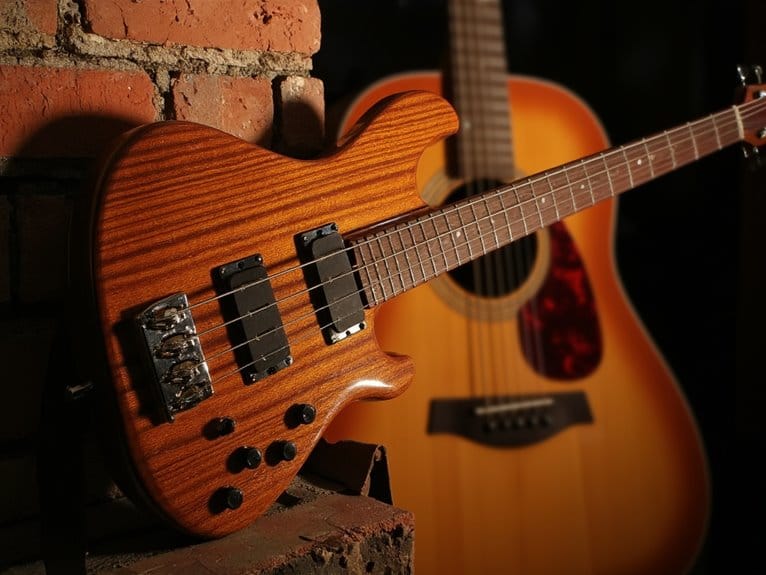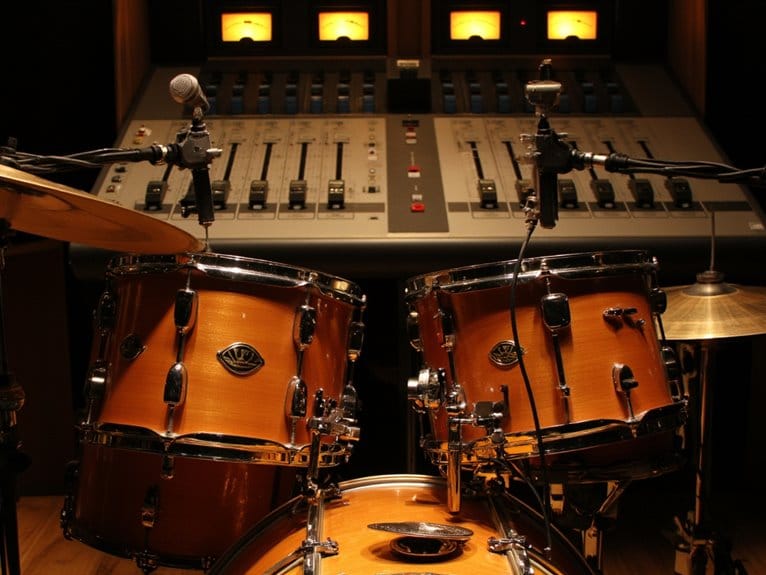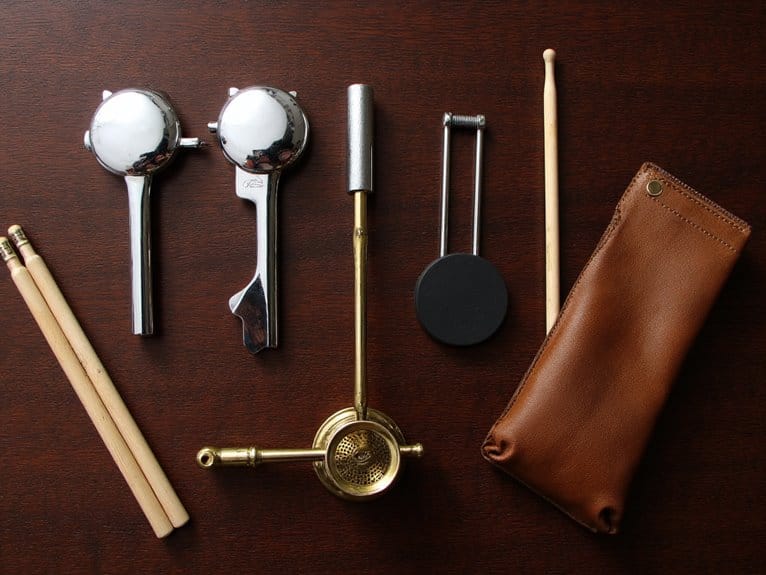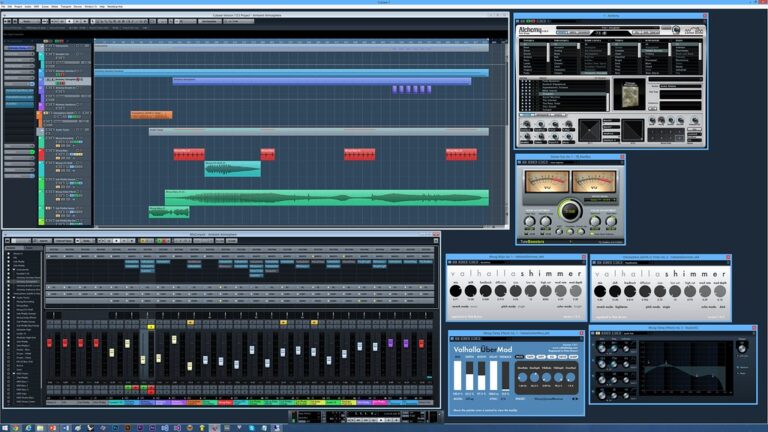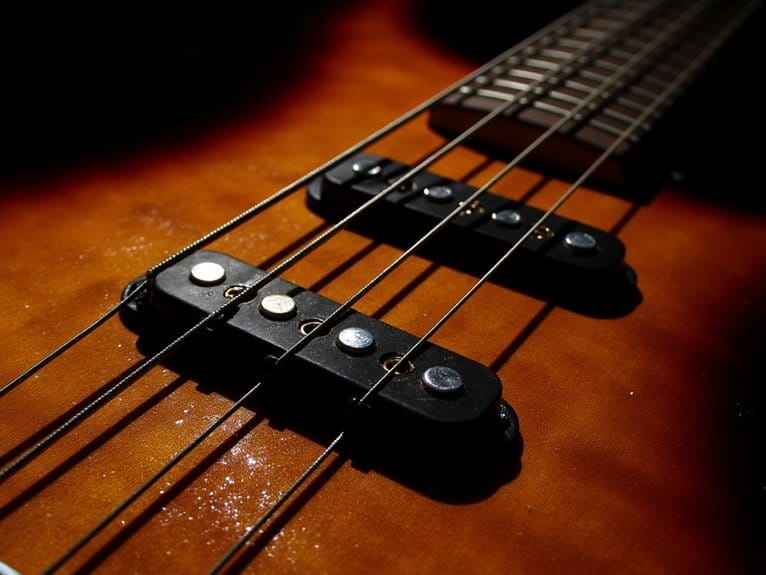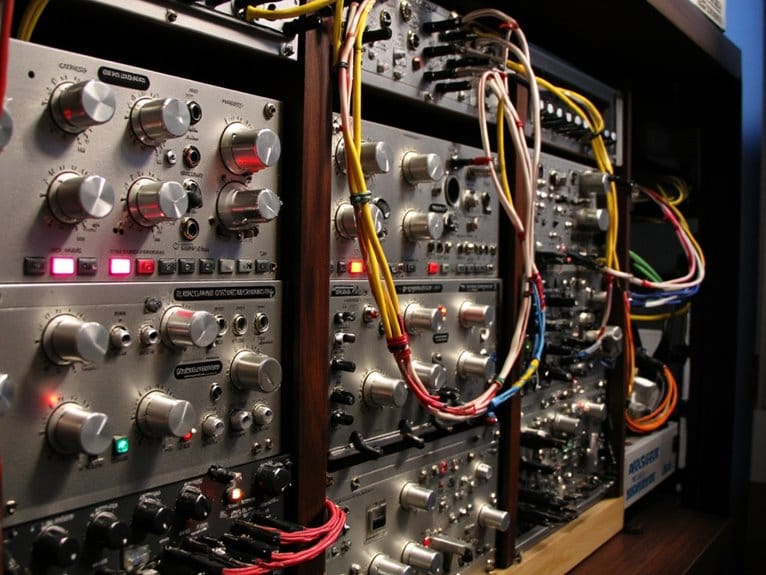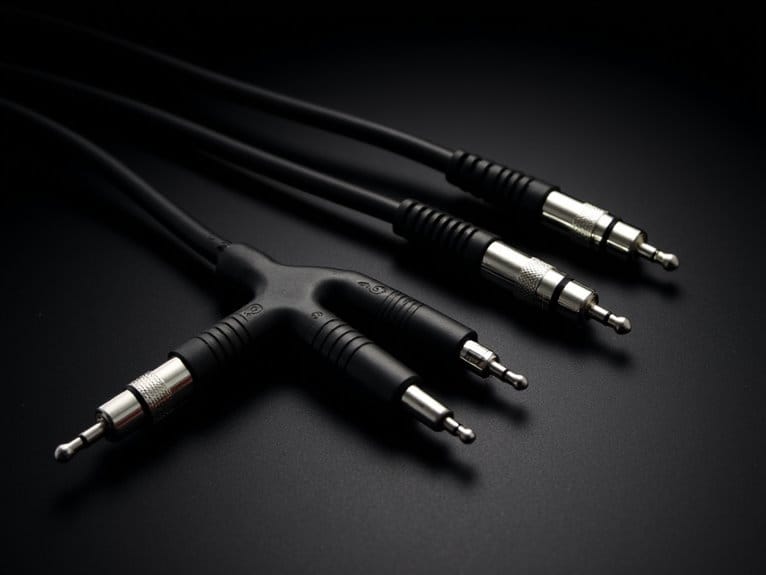Short Scale Basses – De-tabooing the Shorties
You’ve been conditioned to believe short scale basses are compromise instruments, but that’s outdated thinking from an era before neodymium humbuckers and advanced electronics transformed these compact powerhouses into legitimate professional tools. Modern short scales offer reduced string tension for easier bending, closer fret spacing for complex passages, and distinctive warm tones that professionals like Tina Weymouth and Bill Wyman have leveraged throughout their careers, while innovative features continue expanding their sonic versatility.
We are supported by our audience. When you purchase through links on our site, we may earn an affiliate commission, at no extra cost for you. Learn more.
Notable Insights
- Modern short scale basses feature advanced electronics and neodymium humbuckers that rival full-scale instruments in professional performance.
- Reduced string tension and closer fret spacing improve playability, making complex techniques easier while minimizing physical strain.
- Professional endorsements from musicians like Tina Weymouth and Bill Wyman validate short scale basses for serious musical applications.
- Distinctive warm, thick tones excel in jazz, blues, and classic rock, cutting through live mixes with authority.
- Enhanced construction techniques including set necks and dual cutaway designs provide superior stability and complete fretboard access.
Breaking the Myth: Why Short Scale Doesn’t Mean Compromise
Four persistent myths have plagued short scale basses for decades, and I’ve watched countless players dismiss these instruments based on outdated assumptions that simply don’t hold water in today’s market.
You’ll find that modern short scales deliver exceptional sound quality through advanced pickup configurations, neodymium humbuckers, and multi-mode switching systems that rival any full-scale instrument. The warm, rounded tones excel in jazz, blues, and classic rock, while sophisticated electronics compensate for any perceived limitations in sustain or clarity.
Professional models like the Music Man Short Scale StingRay prove these aren’t beginner instruments—they’re legitimate tools for serious musicians who value comfort without compromise. The pickup configuration impacts tonal character significantly, allowing players to choose between single-coil brightness and humbucking warmth regardless of scale length. Additionally, the dual cutaway body designs provide complete fretboard access, eliminating any concerns about reach limitations that skeptics often cite.
Instruments featuring set neck construction offer enhanced stability and tonal resonance, proving that modern engineering has addressed historical concerns about short scale performance. The comfortable neck profile directly affects playability and learning speed, making short scale basses particularly appealing for extended practice sessions.
Your playability preferences matter more than outdated preconceptions about scale length.
The Unique Advantages That Make Short Scale Basses Stand Out
While most players get caught up in the myths surrounding short scale basses, I’ve discovered that these instruments offer compelling advantages that actually make them superior choices for many situations, not just acceptable alternatives.
The playability benefits you’ll experience include reduced string tension that makes bending and vibrato techniques considerably easier, while the closer fret spacing enables faster fingerboard navigation for complex passages in funk, jazz, and punk styles.
Reduced string tension and closer fret spacing unlock easier bending techniques and lightning-fast fingerboard navigation for complex musical passages.
What really sets these basses apart is their distinctive tonal warmth—that mellower, vintage character that’s particularly sought after in blues and classic rock. The shorter string length creates unique vibration patterns that produce this characteristically warmer and rounder tone compared to full-scale instruments.
I’ve found the reduced physical strain especially valuable during extended sessions, as the lighter weight and shorter reach minimize fatigue while encouraging longer, more productive practice time. Short scale basses are particularly excellent for indie genres where their warm, rounded vintage tones perfectly complement the musical aesthetic. Additionally, incorporating a compressor for bass guitar into my setup has further enhanced the overall sound quality, ensuring consistent dynamics that elevate my playing. The added sustain and depth allow for a richer tonal palette, making it easier to blend with other instruments in a mix. As a result, the combination of short scale basses and a quality compressor provides a distinct advantage in achieving that sought-after, cohesive sound.
From Bedroom to Stage: Short Scale Basses in Professional Settings
These benefits become even more impressive when you witness how short scale basses perform in professional environments, where I’ve watched seasoned musicians effortlessly command stages with instruments that many still mistakenly consider “practice room only” tools.
Professional endorsements from icons like Tina Weymouth, Stanley Clarke, and Bill Wyman have shattered the bedroom stigma, proving these instruments deliver exceptional live versatility across genres from jazz fusion to alternative rock.
You’ll find that short scale basses integrate seamlessly with standard amplification systems, maintaining robust frequency response that translates powerfully through stage monitors and house sound systems.
The reduced string tension and compact ergonomics actually enhance performance endurance during extended sets, while their distinctive thick, rich tone cuts through live mixes with surprising authority that audiences can’t distinguish from traditional long-scale instruments. Modern manufacturers like Ernie Ball Music Man have developed short scale versions of their flagship models that maintain the similar sound characteristics of their standard counterparts. Some models even incorporate innovative features like piezo pickups that provide acoustic-like tonal qualities, expanding their sonic versatility for recording and live applications.
On a final note
You’ve seen how short scale basses offer genuine advantages, from enhanced playability and unique tonal characteristics to legitimate professional applications across multiple genres. Don’t let outdated misconceptions limit your choices—these instruments deliver authentic low-end performance while providing comfort benefits that can improve your playing technique and reduce physical strain. Whether you’re recording in tight spaces or performing live, short scale basses deserve serious consideration in your instrument selection process.

